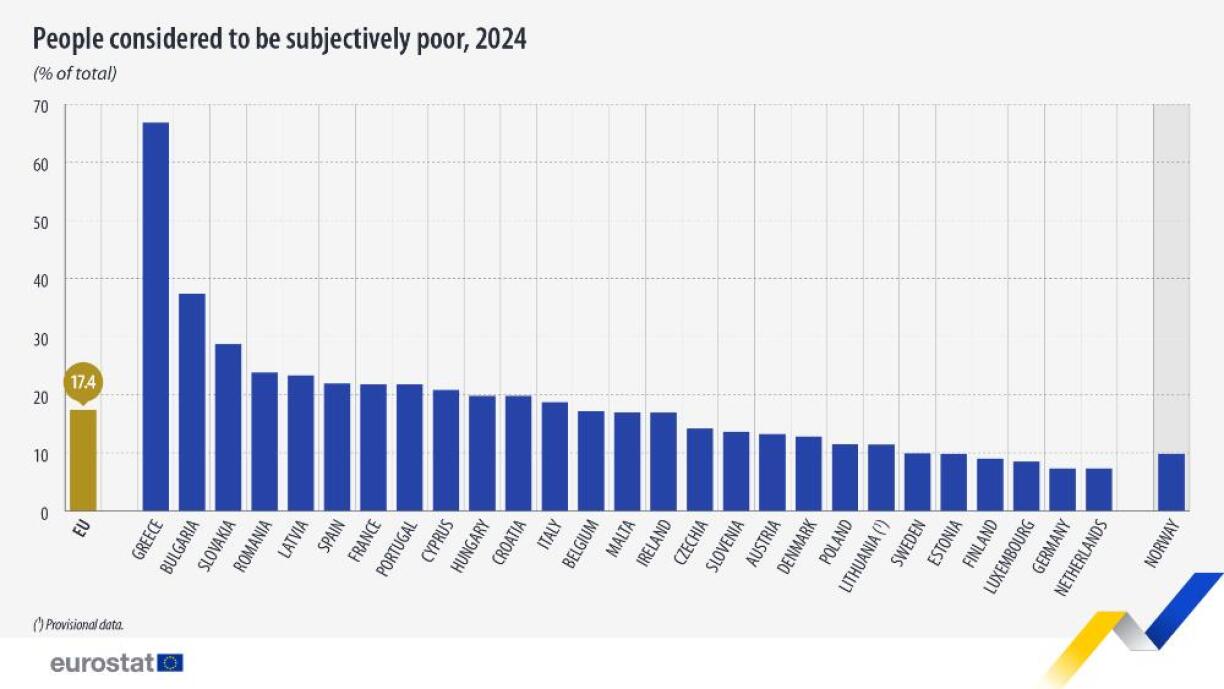
Eurostat’s recent data on subjective poverty captures how individuals perceive their own financial situation, rather than relying solely on income thresholds.
Luxembourg reported one of the lowest subjective poverty rates (half the EU average) at 8.5%, ranking alongside Germany (7.3%) and the Netherlands (7.3%) as countries with the smallest proportion of residents feeling financially insecure.
Belgium with 17.1% is marginally below the bloc average.
By contrast, France recorded significantly higher figures than the EU average with one in five residents (20.2%) identifying as poor – almost three times its neighbour Germany.

Greece topped the list, with 66.8% of its population considering themselves poor, followed by Bulgaria (37.4%) and Slovakia (28.7%).
Across all age groups, perceived poverty fell compared with the previous year. Among people aged 18 to 64, the rate declined by 1.8 percentage points to 17.3%. The largest proportion of subjective poverty remained among those under 18 (20.6%), while the lowest share was among those 65 and over (14.9%). Each age group saw improvements of at least 1.6 percentage points.
Contrary to the report, recent French data suggests that the opposite could be true when measuring poverty. The Directorate for Research, Studies, Evaluation, and Statistics (DREES) recorded Luxembourg as having a poverty rate of 18% – among the highest in the EU.
The decline in subjective poverty for all ages is argued to suggest a gradual improvement in households’ perceived financial wellbeing across the Eurozone.
Luxembourg tops EU income rankings but has highest poverty rate in region